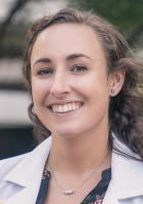 |
Beth Meyerson, PhD
Director, Harm Reduction Research Lab
Professor, Family and Community Medicine
bmeyerson@arizona.edu
bluesky: @bethmeyerson.bsky.social
twitter/x: @beth_meyerson
Linkedin
Dr. Beth Meyerson is a policy and systems researcher trained in implementation science with a Community Based Participatory Action Research orientation. She Directs the Harm Reduction Research Lab and is the Policy Director for the Comprehensive Center for Pain and Addiction.
|
 |
Jon Agley, PhD, MPH
Dr. Jon Agley is an applied health scientist with a focus on methodology, meta-science, and implementation. He is the Deputy Director of Research at Prevention Insights at the Indiana University School of Public Health – Bloomington.
|
| |
|
 |
Benjamin Brady, DrPH, MPH
Dr. Benjamin Brady is an Assistant Professor at Western Michigan University. He studies social factors that influence substance use and work to improve access to harm reduction services, patient-centered care, medication for opioid use disorder, and peer and family support services.
|
 |
Gregory Carter, PhD
Greg Carter is an Assistant Professor and Assistant Dean of Research at the Indiana University School of Nursing. His research is dedicated to enhancing healthcare accessibility for marginalized groups, specifically men who have sex with men and individuals coping with substance use disorders.
|
 |
Zhanette H. Coffee, PhD
Zhanette H. Coffee, PhD, is a nurse scientist and certified family nurse practitioner specializing in integrative health approaches, whole-person health, and multimodal interventions in the interrelated areas of addiction, chronic pain, and mental health. Dr. Coffee’s long-term research goal is advancing addiction and pain science, using innovative mind-body interventions and comprehensive evidence-based care to support a dual patient-provider multilevel impact.
|
 |
Richard Crosby, PhD
Endowed Professor in the Department of Health Behavior & Society
College of Public Health, University of Kentucky
|
|

|
Alissa Davis, PhD
Dr. Alissa Davis is an epidemiologist and Associate Professor at the Columbia University School of Social Work. Her research focuses on the development and evaluation of interventions to improve linkage to and retention in care for HIV/STI, substance use, and mental health services for marginalized and vulnerable populations, including racial/ethnic and sexual minorities and adolescents and young adults. She is particularly interested in novel methods of intervention development and assessment, including intensive longitudinal methods, dyad-based interventions, and the Multiphase Optimization Strategy. She has worked both domestically and internationally in Eastern Europe and Central Asia and China.
|
 |
Jennifer De La Rosa, PhD
Dr. Jenn De La Rosa is a sociologist and data scientist specializing in health equity, workforce development, and health systems reform in the interrelated areas of chronic pain, substance use, and mental illness. She has worked in diverse content areas with themes of self-determination, empowerment, adaptation, and skills enhancement.
|
 |
Lori Ann Eldridge, PhD
Dr. Lori Ann Eldridge is an assistant professor at East Carolina University, North Carolina. She is a public health implementation scientist specializing in substance use. Her research is dedicated to examining the accessibility of prevention, treatment, and harm reduction services for substance use in rural and underserved communities.
|
 |
David Frank, PhD
Dr. David Frank is a medical sociologist and Assistant Research Scientist at the New York University’s School of Global Public Health. He is a person who uses drugs who has been on methadone maintenance treatment for approximately twenty years. His work primarily focuses on methadone maintenance treatment, and problematizes the use of addiction-and-recovery narratives to conceptualize treatment.
|
 |
Linnea Linde-Krieger, PhD, LCSW
Dr. Linnea Linde-Krieger is an Assistant Professor with the University of Arizona Department of Family and Community Medicine, a developmental psychologist, and licensed clinical social worker with over a decade of clinical and research experience. Her ongoing research, which is funded by the National Institutes of Health and the Arizona Institute for Mental Health Research, identifies risk and protective factors for substance misuse during transitional developmental periods, examines infant development and neuroendocrine regulation following prenatal substance exposure, and fosters recovery through implementation science and harm reduction practices.
|
 |
Arlene Mahoney MSW
Arlene Mahoney is the executive director of Southwest Recovery Alliance (SWRA), a grassroots harm reduction organization in Phoenix, Arizona. She is co-chair of the Drug Policy Research and Advocacy Board (DPRAB) and is on the leadership team of the Hepatitis C Free AZ coalition.
|
| |
|
 |
Nina Vadiei, PharmD, BCPP
Dr. Nina Vadiei is a Clinical Associate Professor at the University of Texas at Austin College of Pharmacy and a practicing Clinical Psychiatric Pharmacist at San Antonio State Hospital in San Antonio, TX. She is interested in improving access to and delivery of mental health care, including substance use disorders, and expanding psychiatric pharmacy services.
|
 |
Carolanne Wartman, PharmD
Dr. Carolanne Wartman is a Clinical Assistant Professor at the University of Arizona R. Ken Coit College of Pharmacy and serves as an Advanced Practice Psychiatric Pharmacist at El Rio Health in Tucson, AZ. Her passion for harm reduction began as a student and now drives her commitment to integrating harm reduction principles into the pharmacy curriculum. Her primary areas of focus include reducing the stigma around substance use disorders, developing innovative teaching methods, and enhancing mental health outcomes for marginalized populations.
|
 |
Sana Yousaf
Sana Yousaf (sun-uh you-suf) is a first generation university student in the EdS School Psychology program at the University of Arizona. Her goal is to become a licensed School Psychologist after graduation. A Toronto native of Pakistani descent, she has a BA in Psychology from Toronto Metropolitan University. Currently, she works as a Study Coordinator/Data Manager at the Harm Reduction Lab with Dr. Beth Meyerson on the MPACT Study. She is passionate about making health care accessible and is committed to advancing these goals through her work. In her spare time she loves to read books highlighting marginalized cultures and listening to pop music.
|



















